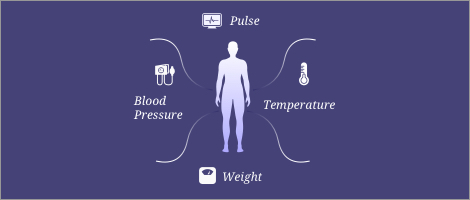Heart transplant is a surgery in which a patient's diseased heart is replaced with a healthy heart from a brain dead donor. This improves the quality of life of the patient and increases lifespan.
Most heart transplants are carried out on patients who have a possibility of end-stage heart failure, a condition in which the heart is severely damaged or weakened, and on people who have failed other treatment options.
Conditions that may eventually require a heart transplant include:
A build up of fatty substances along the walls of the arteries leading to severe left ventricular dysfunction
Where the walls of the heart have become stretched, thickened or stiff
It refers to the birth defects that affect the normal workings of the heart, thus causing complications
Quick Fact: 350 Heart Transplants in India in the last 24 years
To know if your heart is healthy, reach out to the experts Submit Enquiry
A patient becomes eligible for a heart transplant if there has been zero or little response to all others forms of treatment. It begins with a comprehensive assessment of the patient, the underlying causes necessitating a transplant and pre-existing conditions.

The condition that necessitates a heart transplant is congestive heart failure, also known as weakening of the heart muscles.
Still have questions? call our expert team Submit Enquiry
Once a patient has been identified for heart transplant surgery, the patient is put through screening tests aimed at determining their physical condition and ability to withstand a major surgical process.
Here are the tests a patient may be subjected to upon the doctor's discretion:
The primary legislation, Transplantation of Human Organs ACT, was passed in 1994. As per this act, there are certain guidelines to be followed for receiving a transplant depending on the country of residence of the receiver or the state of life of donor. For more information, Visit the Legalities section of our website.
Read MoreHeart Transplants do have a fair share of risks. The risk of this procedure may include:
The patient is given general anesthesia
Medicine is recieved through an intravenous (IV) line in the arm
A breathing tube connected to a ventilator facilitates breathing
The diseased heart is removed and transplanted with a healthy heart received from the donor.
All the blood vessels will be removed from the bypass machine and connected to the new Heart.
The transplant is complete once the surgeon closes the chest
Quick Fact: 50000 heart patients require a heart transplant
Still have questions? call our expert team Submit Enquiry
Heart Transplants do have a fair share of complications. The complications of this procedure may include:
Many of these problems are treatable, although sometimes another heart transplant may need to be carried out if necessary.
There are Cardiac Rehabilitation Programmes to help ease the post-surgery recovery process. Patients will be counselled by the doctor on how to keep track of their overall health which includes monitoring - Weight, Blood Pressure, Pulse and Temperature.

Patients also learn the signs of heart transplant rejection and infection. For the first three months after leaving the hospital, patients will return often for tests to check for infection or rejection of the new heart.
The heart transplant can be a new lease of life for patients with end-stage heart diseases. But even after the transplant, there are certain precautions that need to be taken.

Regular Follow Up
It is advised that patients regularly follow-up with their doctors to monitor the progress of the heart transplant. These maybe frequent at first, but will gradually decline

Immunosuppressants
The body may regard the new heart as foreign and attack it. Immunosuppressants prevent this from happening. Patients will need to take these medicines for the rest of their life

Hygiene
Practicing good hygiene, obtaining routine vaccines, and making healthy lifestyle choices are very important after a heart transplant
Survival Rate: 85%
Our experts can help you cope with life after heart transplant Submit Enquiry
Heart transplant story of Mrs. Sundari | Jeevandan, Yashoda Hospitals
Mrs. Aruna speaks about her heart transplant surgery | Jeevandan, Yashoda Hospitals
As medicine progresses, so does the life expectancy of patients undergoing heart transplant. There have been great strides taken in the last decade or two, which have increased the success rate and the life expectancy of patients.
Increased Lifespan of 1 year: 82.5%
Increased Lifespan of 5 years: 70%
Source: www.ahn.org
It is imperative that patients learn about different transplant centres around them before zeroing in on any one of them. A few things to keep in mind while choosing a transplant centre are:
The cost can be a major factor for any patient who needs a Heart Transplant. For a person suffering from an end-stage heart condition, the cost of medication, consultation and treatment itself can be quite expensive.
Doctors generally suggest patients and their families to check their insurance plans for coverage of organ transplants. The average cost of a heart transplant can range anywhere between 20 - 25 lakhs. This includes pre-transplant evaluation, the surgery itself and post-transplant recovery period. The costs generally depend on:
Patients who don't live in the vicinity of the hospital and/or have travelled from another city for the transplant also need to keep in mind the cost of stay in the new city. Most patients and their families opt to find a house on a short-term lease in close proximity to the hospital. These costs can add up over the course of a few months.
Speak to the experts, and learn more about the cost of an organ transplant Submit Enquiry
Being diagnosed with a end-stage heart disease is both confusing and frightening for you as well your family. Call to know more about how heart transplant could be a new lease of life for you.
Submit Enquiry